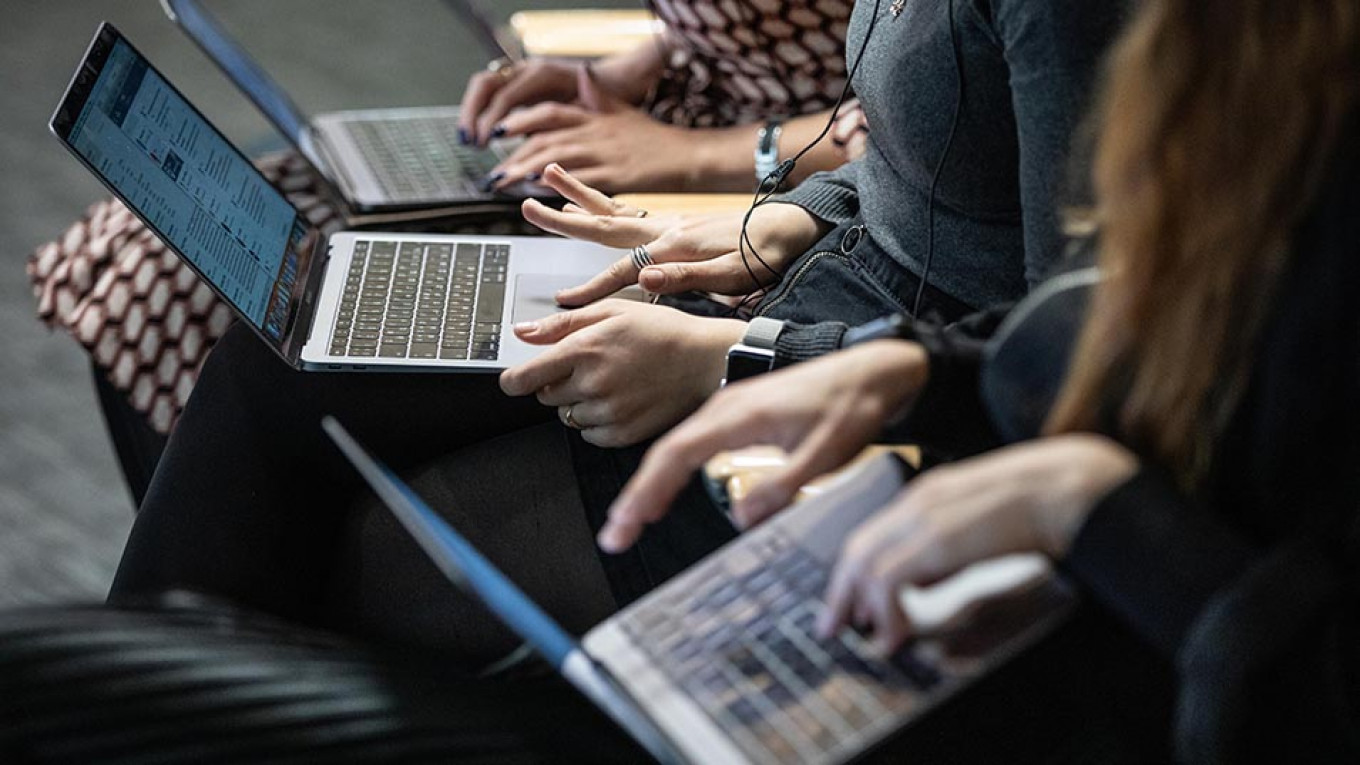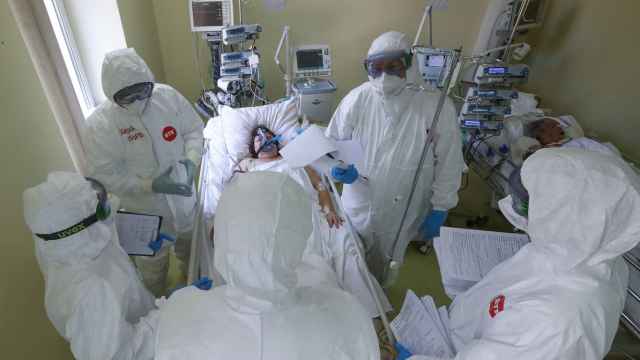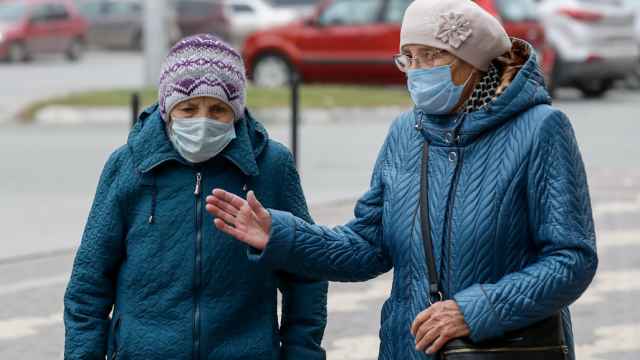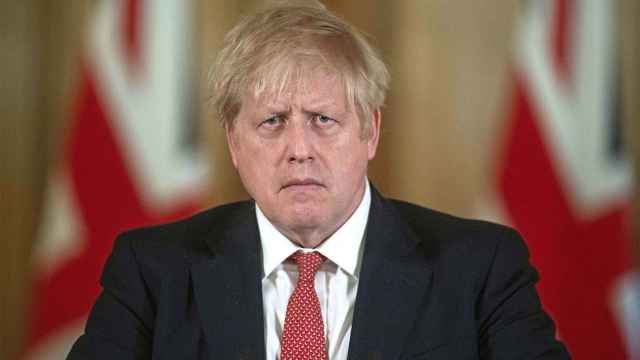Britain, the United States and Canada on Thursday risked worsening fraught diplomatic ties with Russia by accusing Moscow-linked hackers of targeting labs in their countries conducting coronavirus vaccine research.
The three governments pointed the finger at the Kremlin, saying that a hacking group called APT29 was "almost certainly" linked to Russian intelligence.
In a separate claim, London said "Russian actors" sought to disrupt last year's UK general election by circulating leaked trade documents between Britain and the United States.
Both accusations came even before the publication in the coming days of a long-awaited British parliamentary report into alleged Russian interference in the 2016 Brexit vote.
Russia quickly rejected the accusations as "groundless."
The United Kingdom’s National Cyber Security Centre (NCSC) and Canada’s Communications Security Establishment (CSE) said Thursday that APT29 was "a cyber espionage group, almost certainly part of the Russian intelligence services," adding their the assessment was endorsed by their U.S. counterpart.
"Throughout 2020, APT29 has targeted various organizations involved in COVID-19 vaccine development in Canada, the United States and the United Kingdom, highly likely with the intention of stealing information and intellectual property relating to the development and testing of COVID-19 vaccines," it said.
The group was "likely to continue to target organizations involved in COVID-19 vaccine research and development, as they seek to answer additional intelligence questions relating to the pandemic."
In a separate statement, the U.S. National Security Agency repeated the accusations and said that APT29 "uses a variety of tools and techniques to predominantly target governmental, diplomatic, think-tank, healthcare and energy targets for intelligence gain."
Russia and Britain have been at loggerheads since Moscow was accused of trying to kill double agent Sergei Skripal with a powerful military-grade nerve agent in 2018.
The attack in Salisbury, southwest England, came 12 years after the radiation poisoning of former spy Alexander Litvinenko in London. Again, Russia denied involvement.
'Completely unacceptable'
Britain is one of a number of countries conducting human vaccine trials for COVID-19. One, at the University of Oxford, showed potential positive results, media reports said on Thursday.
But the National Cyber Security Centre, part of Britain's GCHQ electronic eavesdropping agency, said labs were among those targeted "to steal valuable intellectual property."
NCSC director of operations Paul Chichester said known targets included UK, US and Canadian vaccine research and development organisations using techniques including malware.
APT29 — also known as "The Dukes" or "Cozy Bear" — had also tried to hack government, diplomatic, think-tank and energy groups, it added.
Nearly 600,000 people have died and more than 13.5 million infected in the coronavirus outbreak this year.
Britain's Foreign Secretary Dominic Raab said that targeting those working to find a vaccine was "completely unacceptable."
"While others pursue their selfish interests with reckless behavior, the UK and its allies are getting on with the hard work of finding a vaccine and protecting global health," he added.
Election meddling
Earlier, the government said there were strong suspicions of a Russian link to the leak of classified documents about a possible post-Brexit trade deal with the United States.
An investigation was launched after files were published on the social media site Reddit and were later picked up by the main opposition Labour party.
The party used them in its campaign for the December 12 election, claiming they proved Prime Minister Boris Johnson would "sell-out" the state-run health sector to US President Donald Trump.
Health funding was a key campaign issue, and Johnson was repeatedly forced to deny the claim.
Labour's then leader Jeremy Corbyn dismissed claims the leak was put online by Russia as a "conspiracy theory."
Raab stopped short of accusing Moscow of direct involvement.
But he said it was "almost certain... that Russian actors" were involved by putting the leaked documents online.
Johnson and his ruling Conservative party won a huge majority in the election, allowing him to push through his Brexit deal to take Britain out of the European Union.
Parliament's Intelligence and Security Committee launched a probe into suspicions of Russian interference in the 2016 Brexit vote after concerns sparked by claims of meddling in the US presidential election won by Trump.
It completed the report last year but publication was delayed first by the election, and then Johnson's failure to nominate new members to the committee.
This finally happened last week and members had their first meeting on Thursday, where they agreed to publish the Russia report before next Wednesday.
A Message from The Moscow Times:
Dear readers,
We are facing unprecedented challenges. Russia's Prosecutor General's Office has designated The Moscow Times as an "undesirable" organization, criminalizing our work and putting our staff at risk of prosecution. This follows our earlier unjust labeling as a "foreign agent."
These actions are direct attempts to silence independent journalism in Russia. The authorities claim our work "discredits the decisions of the Russian leadership." We see things differently: we strive to provide accurate, unbiased reporting on Russia.
We, the journalists of The Moscow Times, refuse to be silenced. But to continue our work, we need your help.
Your support, no matter how small, makes a world of difference. If you can, please support us monthly starting from just $2. It's quick to set up, and every contribution makes a significant impact.
By supporting The Moscow Times, you're defending open, independent journalism in the face of repression. Thank you for standing with us.
Remind me later.






